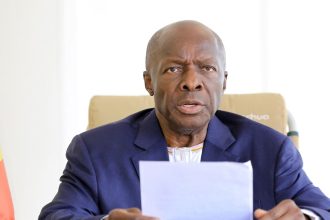The Sabiiny cultural institution is requesting $13 billion to implement an Alternative Rites of Passage (ARP) program, aiming to replace the outlawed practice of Female Genital Mutilation (FGM). Despite a 15-year-old government ban, FGM continues covertly, often occurring during male circumcision festivals and in remote locations to evade law enforcement.
The Sabiiny cultural institution believes that a new ARP curriculum, costing approximately sh10 billion, could be more effective than using force to combat FGM. The ARP model aims not only to end female circumcision but also to eradicate child marriage, often linked to FGM as a rite of passage.
Stakeholders and Funding
| Stakeholders | Proposed Contribution |
|---|---|
| Sabiiny Cultural Institution | Seeking $13 billion |
| Ministry of Gender Labour and Social Development | Collaborating on the project |
| ActionAid International Uganda (AAIU) | Hosting meetings, collaborating with UNFPA |
Dr. Jesca Mary Kusuro, the model consultant, highlighted the need for UGX 2-3 billion for the initial pilot phase, emphasizing the model’s effectiveness in providing alternatives to FGM. The Sabiiny Women ARP (SWAROP) curriculum includes formal education on family, nutrition, parenting, computer skills, and literacy.
SWAROP Curriculum Highlights
| Subjects | Emphasis |
|---|---|
| Family | Emphasizing responsibility |
| Nutrition | Promoting healthy choices |
| Parenting | Building effective parenting skills |
| Computer and Literacy | Equipping with essential skills |
The Sabiiny cultural leaders, Ministry representatives, and organizations working to eliminate FGM attended a meeting organized by AAIU and UNFPA. The SWAROP model gained approval during a validation meeting attended by Sabiiny clan elders and district executives.
Funding Sources and Contributions
| Source of Funding | Proposed Contribution |
|---|---|
| Clan Contributions | $1 million annually |
| Political Contributions | $300,000 per month |
| Government and Partner Funding | To be augmented |
The Sabiiny Cultural Institution is exploring various avenues to secure funds for the ARP program, with plans to legalize and implement it next year. The program aims to create an environment where women and girls are free from the risks and consequences associated with FGM.
According to the World Health Organization, FGM can lead to severe health issues, including bleeding, painful urination, infections, complications in childbirth, and increased risk of newborn deaths. Despite cultural views linking FGM to rites of passage and cleanliness, its hidden goal is often to regulate women’s sexuality.
In addition to focusing on girls, the Sabiiny Cultural Institution recognizes the importance of including boys in mentorship programs to address the root causes of FGM and promote a holistic approach to ending the practice.




















